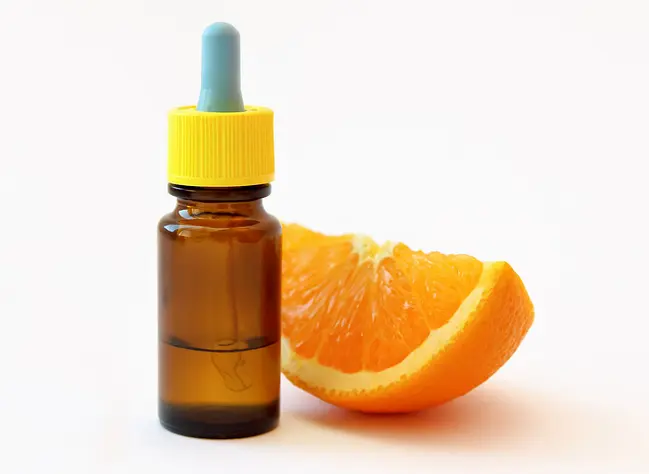
VITAMIN A
Vitamin A (aka retinoids) are considered the gold standard in terms of skin care. Topical vitamin A is now used to treat over 125 skin disorders including, acne, sun damage, hyperpigmentation and even dermatitis.
Prescription forms of topical retinoids – commercially known as Stieva-A, Retin-A and Differin – are effective, but need to be used under the guidance of the prescribing doctor. Many patients discontinue the use of this prescription form of vitamin A due to insufficient information about the graded treatment regime.
Non-prescription topical retinoids are considered the ideal starting form of delivering topical Vitamin A with maximum stability and effectiveness and minimal irritation, until the skin is conditioned, and ready for the stronger prescription formulation.
Vitamin A is a fat-soluble vitamin and as such can accumulate in the tissues if taken orally in high doses. Standard oral low dose Vitamin A supplements have been clinically evaluated in terms of treating skin conditions such as acne. Results suggest that low dose oral supplementation may be ineffective at raising whole-body vitamin A levels. Higher oral doses of over 1000 IU of Vitamin A can, however, lead to severe side effects such as headaches, blurred vision, skin dryness and even reduced muscle function. Topical administration of vitamin A can achieve levels up to 4-fold higher than standard oral Vitamin A, while avoiding the possible side effects of oral preparations.
So, in terms of treating the skin, topical retinoid is the number one, over oral vitamin A supplements. Treatment should follow a graded regime, starting with lower dose non-prescription preparations, to be followed by stronger prescription only topical retinoid.
VITAMIN B3 (NIACINAMIDE)
Topical Vitamin B3 is the multitasking skin vitamin. It is used to treat acne, inflammation, fine lines, dehydration and flaking skin, pigmentation and even skin immunity.
B3 is found in a variety of foods including green vegetables, grains, eggs, dairy products, meat, fish, milk, and grains. This leaves it very difficult to have a B3 deficiency in modern society with the diverse food choices available. .
Current studies from The National Institute of Health suggests that B3 works more effectively for some skin conditions when used topically rather than orally. Particularly, Niacinamide has been shown to help normalise sebum/oil production, and is therefore effective in treating acne, redness of rosacea and skin dehydration.
Cancer Council NSW helped fund one of the biggest discoveries in skin cancer research – that vitamin B3 can help reduce non-melanoma skin cancers. The observed effects were, solar keratoses were reduced by a third, and the development of new non-melanoma skin cancers (basal cell carcinoma and squamous cell carcinoma) was reduced by about 20-30 per cent (and up to 75 per cent in an earlier study).
The effective dose of oral vitamin B3 is 500mg daily.
Please note:
Multivitamins and B-complex preparations do not contain this much vitamin B3.
It’s important to take the correct form of vitamin B3. Make sure the tablets are nicotinamide or niacinamide and not nicotinic acid/niacin, which may cause side effects.
Vitamin B3 is also effective when used directly on the skin. It is available in some sun screens and skin creams and serums.
Furthermore, because B3 is a water-soluble vitamin, it is not stored in the body so what is not used is rapidly excreted.
VITAMIN C
Topical, oral or both?
The antioxidant properties of Vitamin C can shield skin from harmful free radicals –, like the ones produces by the sun’s radiation, air pollution and cigarette smoke. If incorporated into your skincare routine, Vitamin C can reduce the appearance of brown spots or other sun damage, promote firmer skin through boosting collagen synthesis, boost defences against damaging UV exposure, reduce inflammation and irritation, and improve the ability of the skin to heal and fade breakout marks.
Vitamin C affects the cells on the inside and the outside of the body. So, a diet that provides a source of natural Vitamin C is still, and always will be, important for your health. However, to target those areas of your skin that you want to tighten up, or tackle fine lines, or ageing, or pigmentation, the application of Vitamin C products directly to the areas you want to treat can help you see genuine results faster. The use of topical ascorbic acid is therefore favoured in the practice of dermatology.
A variety of creams with Vitamin C derivatives are available on the market. It is important to know that not all preparations are effective.
Magnesium ascorbyl phosphate (MAP) is the most stable and preferred ascorbyl ester. This lipophilic molecule is easily absorbed into the skin. MAP has a hydrating effect on the skin and decreases transepidermal water loss. It is also a free radical scavenger that is photoprotective and increases collagen production under laboratory test conditions. Other useful stable esterified derivatives are Ascorbyl 6 palmitate, a lipophilic free radical scavenger that hydrolyses to Vitamin C and Palmitic acid.
Topical Vitamin C is largely safe to use on a daily basis for long durations. It can safely be used in conjunction with other common topical anti-ageing agents such as sunscreens, tretinoin, other antioxidants and alfa hydroxy acids such as glycolic acid. Minor adverse reactions include a yellowish discoloration of the skin, hypopigmented hair and staining of clothes. Once applied, Vit. C cannot be fully washed or wiped off the skin. Care must be taken while applying Vit. C around the eyes.
Data suggests that oral vitamin C in sufficiently high doses is effective in protecting against UV free radical damage and can aid in skin healing. It is also important to ensure vitamin C supplementation is coupled with other micronutrients, such as vitamin E, iron and zinc.